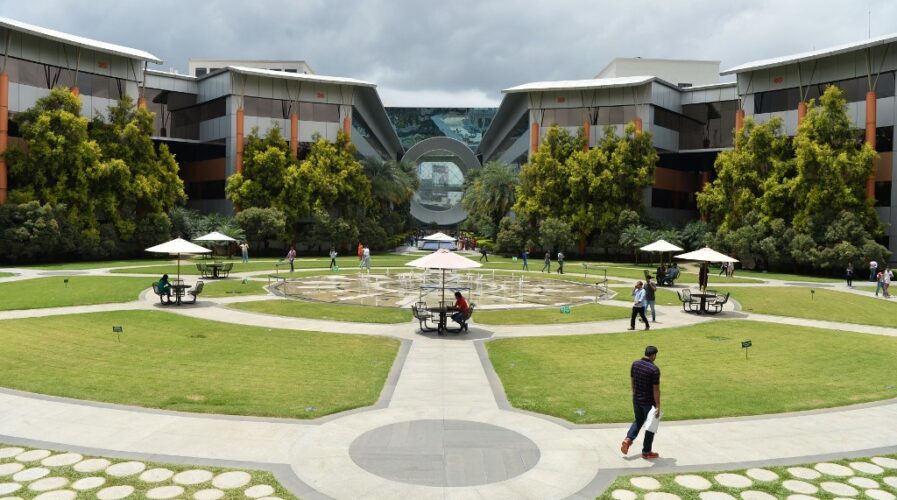
Indian companies like Infosys Technologies will hold nearly 10% of the global SaaS market by 2022. Source: AFP
What’s behind India’s booming enterprise software market?
- Indian Software-as-a-Service (SaaS) companies have quietly become a force to be reckoned with, supplying enterprise software at home and abroad
Indian startups have emerged as the software-as-a-service (SaaS) powerhouses supplying thousands of enterprise solutions for companies worldwide over the past couple of years – and the numbers are backing it up.
Over just the past five years, India has gone from a modest SaaS ecosystem to over 1,000 SaaS startups, of which more than 150 have exceeded US$1 million in revenues. Firms such as Zoho, Freshworks, Druva, and Icertis have already broken through the US$100 million annual recurring revenue (ARR) barrier, with a healthy pipeline of companies well-placed to follow over the next 12 to 18 months, according to a new report by Bain & Co.
The same report outlined how India’s enterprise software providers are on the brink of reaching between US$18-20 billion in revenue by 2022 and are poised to secure around 7-9% share of the global SaaS market within the next two years.
Considering the average American enterprise today uses more than 1,000 SaaS products on a semi-regular basis, it appears the sky is the limit for industrious startups in India’s ecosystem. And the local industry has several built-in advantages that should see Indian software solutions booming further in coming years.
Firstly, India can build on its long-entrenched IT services roots, as well as its expertise in handling business process outsourcing for multinational organizations. The experience and standards expectations of catering to foreign firms, coupled with the country’s ready pool of technology talent, give the local sector a big knowledge leg-up when contrasted with other prospective SaaS regions.
“Indian SaaS companies have distinct competitive advantages over their global peers – they have access to a wide pool of skilled talent base including 100,000-plus SaaS developers, significantly lower (like 75-85% lower) personnel costs compared to developed countries for similar talent in sales and development, and flexible models like around-the-clock service with a trained service workforce from our IT and BPO industries,” said Aditya Shukla, a partner at Bain & Company and the co-author of the report.
“In addition, there is now a wide acceptance of world-class products built and managed by Indian founders across the globe,” Shukla added, segueing nicely towards the entrepreneurs in the Indian startup scene that nurture upcoming generations of potential SaaS entrepreneurs.
Fortune detailed how Freshworks CEO Girish Mathrubootham devoted hours to educating peers at younger companies about the entire ecosystem at a Chennai gathering for SaaS entrepreneurs earlier this year – a room that included multiple potential competitors.
Zoho founder Sridhar Vembu is also noted for actively engaging with the local SaaS community, encouraging entrepreneurship, and creating value in the local industry that can result in the flourishing of the scene, including many new SaaS ventures and creating more jobs in the industry.
Another aspect is how the pandemic has accelerated the need for software tools that empower businesses with the abilities to connect and service customers, in spite of physical limitations and being located in polar opposite parts of the planet.
SaaS is actively replacing other extraneous software segments like enterprise resource planning (ERP), customer relationship management (CRM), and point-of-sale (POS) systems, so the short-term demand for SaaS solutions should be even higher than other enterprise needs, and India’s exploding enterprise software industry is ideally placed to capitalize on the fast-growing segment.
READ MORE
- Ethical AI: The renewed importance of safeguarding data and customer privacy in Generative AI applications
- How Japan balances AI-driven opportunities with cybersecurity needs
- Deploying SASE: Benchmarking your approach
- Insurance everywhere all at once: the digital transformation of the APAC insurance industry
- Google parent Alphabet eyes HubSpot: A potential acquisition shaping the future of CRM


